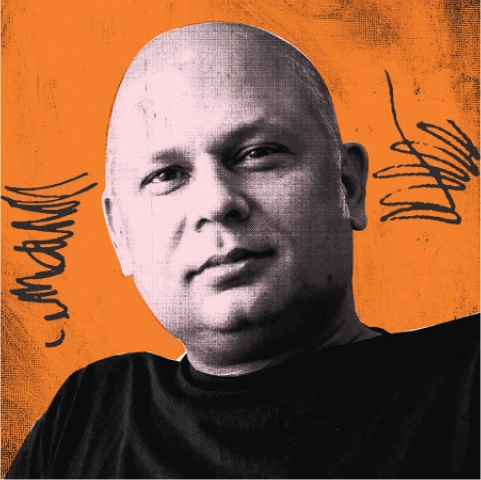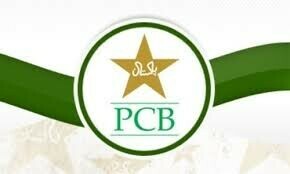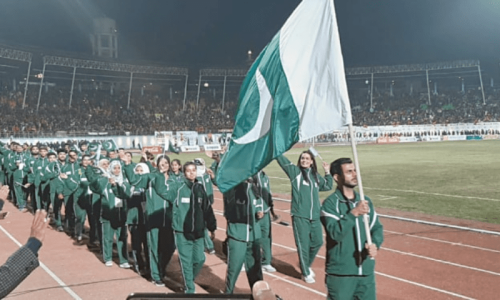
It was about 25 years ago — a time of intense political tensions between Sindhi-speaking and non-Sindhi speaking communities in the province of Sindh. The MQM was in its prime and, after its short-lived initial romance with veteran Sindhi nationalists, the very existence of this urban-based political party was seen to be contributing enormously to linguistic and social conflict in the province. Matters would occasionally spark riots or individual incidents of violence in campuses or towns. Most things, rightly or wrongly, symbolising the state of Pakistan — the division of British India that caused major demographic changes in Sindh, the Urdu language and associated culture including the poetry of Allama Muhammad Iqbal, and the political hegemony of the province of Punjab — had become subjects of disdain and ridicule among most Sindhi resistance thinkers and political workers.
That was when I first visited the village of my friend, now a leading academic, Dr Haider Nizamani. A man of advanced middle age, who came from a neighbouring hamlet, joined us for lunch. After some time, the conversation turned to poets and poetry. This gentleman began to sing praises for Iqbal. The charged political workers present at the gathering expressed their dismay over Iqbal’s use of religion in his verse, which they felt had caused communalism to increase. They recounted the failings in the idea of a separate faith-based homeland for a part of South Asian Muslims, attributed to Iqbal. The man completely ignored, rather dismissed, the dissenting voices and continued to randomly recite Iqbal’s Persian and Urdu verse. He offered simultaneous translations in chaste Sindhi. He said, “I am a fakir and compose and sing my own poetry at times. Some of us friends regularly go into the wilderness and cherish nature. I am the humble disciple of Shah Latif. But Iqbal, to people like me, is a Lahooti [divine mystic]. I leave political analysis to more learned friends.” Amid all that justified and genuine political anger caused by wounds inflicted on the society and polity of Sindh, here was an artist capable of thinking differently and taking a broader cosmopolitan view.
In the case of Iqbal, most rational, liberal and progressive political thinkers and workers, who speak Urdu, Punjabi or Pashto as their first language, share the same view which is held by many of their Sindhi-speaking counterparts. I find it intriguing how Iqbal is perceived and discussed so differently between progressive thinkers and political workers on the one side and some progressive poets and creative writers on the other.
Ali Sardar Jafri, a major Urdu poet and pioneer of the left-wing Progressive Writers’ Movement in South Asia, authored Iqbal Shanasi [Understanding Iqbal] with an insightful appreciation of the man and his work. One may infer from Jafri’s thesis that Iqbal can be seen as laying the foundation stone of a modern sensibility and progressive thought in Urdu poetry without severing his historic and civilisational ties. Likewise, Faiz Ahmed Faiz offered tribute to Iqbal in a beautiful poem. The first stanza reads: “Aaya humaaray des mein ik khush nawa fakir/ Aaya aur apni dhun mein ghazal-khwan guzar gaya/ Sunsaan raahein khalq se abad hogayien/ Veeraan maikadon ka naseeba sanwar gaya” [A melodious fakir came to our land/ He came and he left singing his own tunes/ Deserted streets were filled with dwellers/ Empty taverns were animated yet again].
Poets may still subscribe to progressive political views, but they instinctively draw upon the history and tradition within which they are born.
I understand that Iqbal’s different political positions at various times in his career can be scrutinised and challenged. However, as far as critique on his religious symbolism in poetry is concerned, what is considered religious symbolism by a section of our liberal and progressive thinkers and political workers is actually a part of the civilisational and cultural moorings for an artist.
The poets may still subscribe to progressive political views when it comes to the present. But they instinctively draw upon the history and tradition within which they are born. All genuine artists are rooted. They may branch out wherever. Some great ones become trees with broad trunks, their branches touching the sky, and with thicker foliage than others. But the broader the trunk and the higher the tree grows, the roots have to be deeper and wider. It is both language and civilisational psyche that play a defining role in shaping their sensibility and expression.
When it comes to devotional verse, some of our logical and rational thinkers also see devotional references in the works of our progressive poets as problematic. They are of the view that such references and symbols must be expunged from the language and poetic lexicon. But perhaps the mind of the artist works differently. Mirza Asadullah Khan Ghalib, the giant of a man seen as modern in his outlook on life, logically accepting in his times the superiority of Western civilisation over his own and encouraging the likes of Sir Syed Ahmad Khan to embrace new education, writes fervently and continuously in praise of Hazrat Ali. Habib Jalib, the most courageous and vocal communist poet of resistance in Pakistan says, “Saoobaton ke safar mein hai kaarvan-i-Hussain/ Yazid chayn se masnad nashin aaj bhi hai” [The caravan of Imam Hussain is still suffering with the plight this journey brings/ Yazid, the usurper, continues to shine on the throne]. For Jalib, this is a purely revolutionary verse referring to a struggle between right and wrong, the oppressed and the oppressor.
May I also remind us how ‘Heer’ — the celebrated legendary saga of love in Punjabi by the great poet Waris Shah — begins: “Awal hamd khuda da vird keejay, ishq kita su jag da mol mian/ Pehlay aap hai rabb ne ishq kita, mashooq hai nabi rasool mian” [Let us begin by praising God who created this world through love/ He was the first lover Himself and His beloved was His Prophet]. I think it is important to be at peace with one’s civilisation and culture and then evolve and grow, shedding the weaknesses and wrongdoings of the past. Any political ideology devoid of cultural moorings leaves us rootless.
The writer is a poet and essayist based in Islamabad. His latest book is a collection of verse No Fortunes to Tell
Published in Dawn, Books & Authors, April 21st, 2019













































Dear visitor, the comments section is undergoing an overhaul and will return soon.